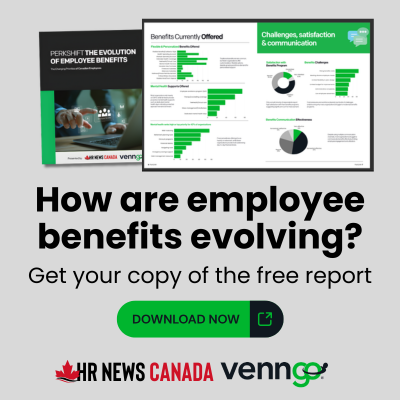Employee ratings of senior leadership have fallen to their lowest levels since early 2024, according to a new workplace trends report that shows growing tensions between workers and management.
Glassdoor’s 2026 Worklife Trends report, released Nov. 12, found that mentions of “disconnect” in employee reviews increased 24 per cent from 2024 to 2025. Related terms showed even sharper increases, with “misalignment” surging 149 per cent, “distrust” rising 26 per cent and “miscommunication” up 25 per cent.
The analysis examined 3.3 million Glassdoor reviews from January 2019 through October 2025, focusing on current full-time employees.
Leadership ratings decline across industries
Senior management ratings peaked during the pandemic as leaders navigated COVID-19 challenges. Ratings returned to pre-pandemic levels in 2022 but began declining in 2023, according to the report.
The steepest drops occurred in management and consulting, media and communications, and technology sectors. The report attributes the decline to leaders making major strategic decisions while workers face burnout and job insecurity.
Small layoffs become the new normal
Employers have shifted to smaller, more frequent layoffs rather than large-scale cuts, according to the report. Small layoffs affecting fewer than 50 workers rose from 38 per cent of all layoffs in 2015 to 51 per cent in 2025, based on analysis of WARN Act notices.
The report calls this pattern the “forever layoff,” describing it as job cuts that come in waves rather than single events. Mentions of layoffs and job insecurity in Glassdoor reviews reached levels in late 2025 that exceeded March 2020 pandemic-era rates.
The analysis examined 6.2 million U.S.-based Glassdoor reviews from employees between January 2019 and September 2025.
Remote workers face career advancement challenges
Average career opportunity ratings for remote and hybrid workers dropped from 4.1 in 2020 to 3.5 in 2025, according to the report. The data suggests employers are prioritizing in-person workers for promotions and career growth.
Work-from-home rates remained essentially flat in 2025 despite high-profile return-to-office mandates. Stanford economist Nick Bloom likened RTO mandates to laws against jaywalking, stating “everyone knows about them, but compliance and enforcement are spotty,” according to the report.
Overall ratings and senior management ratings for workers who mentioned remote or hybrid work as a workplace benefit have fallen below levels for other workers.
Job seekers less likely to reject offers
Job applicants were 12 per cent less likely to reject job offers in 2025 compared to 2023, based on analysis of 173,479 interview reviews. The decline rate dropped sharply in the third and fourth quarters of 2025.
Hiring rates are at a 10-year low, according to the report. Offer rejection rates remained low through the Great Resignation period but peaked in 2023 and early 2024 before declining.
AI shows limited workplace impact so far
Employee satisfaction in occupations with high AI exposure declined by just 0.02 stars on a five-point scale compared to other occupations between 2022 and 2025. The difference was slightly larger for early-career workers at 0.05 stars.
Some specific occupations showed larger declines in career opportunity ratings, including translators (down 0.55 stars), software engineers (down 0.29 stars) and copywriters (down 0.14 stars).
The analysis examined 2.8 million Glassdoor reviews from U.S. employees for jobs held in 2022 and 2025.
Early-career wages recover purchasing power
Real wage growth for workers with zero to four years of experience will surpass 2020 levels in 2026, according to the report. The analysis found wage growth averaged 4.3 per cent annually from 2023 to 2025, while inflation averaged 3.0 per cent.
Between 2020 and 2022, real wages for early-career workers dropped 4.1 per cent as inflation outpaced wage growth. Average salaries rose 4.9 per cent annually during that period, while inflation climbed 6.8 per cent per year.
The report analyzed 7.0 million salary submissions from workers with zero to four years of relevant experience from January 2020 through October 2025.





